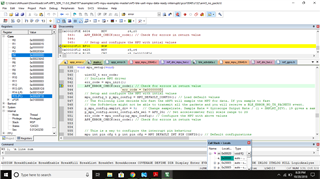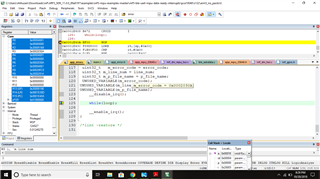My pcb is nrf52832 based, with SPI interfacing ICM20649 sensor.
- Nordic SDK 11.0
- Softdevice 2.0
I am able to flash example code of SPI based ble_peripheral and mpu and advertise, but the same code doesn't advertise with TWI example code. I also flashed TWI scanner with, but no results on RTT viewer.
pin configuration
#if defined(BOARD_PCA10040) #define MPU_TWI_SCL_PIN 4 #define MPU_TWI_SDA_PIN 27
on pcb SPI configuration is :
SCL-- P0.04
SDA-- P0.27
SDI-- P0.26
NCS-- P0.05




